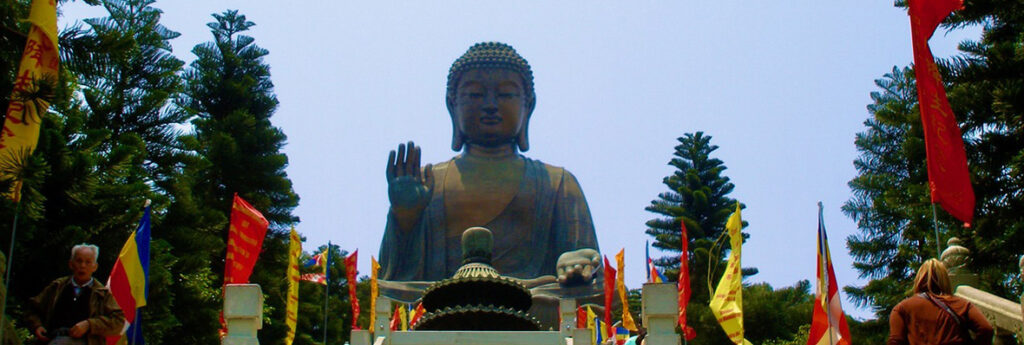Picking up on the current controversy regarding the WE organization’s political relationships, Reuters distributed an article headlined “Who does ‘voluntourism’ actually help?” Voluntourism is an issue. The New York Times once dismissed it as “do-good travel”.
Most people, I believe, want to be kind, but how to actually be helpful vs patronizing or clumsily invasive? For example, in Hong Kong a group I was with was taken to the mountain top Tian Tin Buddha. While there a guide prepared us for lunch at the neighbouring Po Lin Monastery and how to be respectful of the monks. Having inquired if there would be forks, some of our group broke away to photograph people kneeling before the buddha. Great for their Instagram, but somewhat vulgar to suggest prayer was a visitor ‘must see’.
While Oprah encouraged her audience to engage in random acts of kindness the business world embraced Corporate Social Responsibility (CSR), which is anything but random. It’s not about temporary optics and a quick feel-good session, but sustainable, meaningful change. CSR seems to have grown out of the green movement. As we – individually and collectively – became more aware of waste, our vision grew sharper and broader highlighting opportunities to engage in real change. And all the best people are doing it.
Domestically Fairmont Hotels and Resorts, for example, in 1995 launched an Adopt-A-Shelter program where maintenance, culinary and executive teams donate their skills to local women’s shelters. Furniture and computers are also “repurposed” to benefit these shelters. Jazz Aviation instituted a Jazz Hands program which encouraged staff volunteerism. And a Toronto incentive house created a Habitant-for-Humanity style event for a long-term client. A company rep said, “We’ve been doing trips with that company for over 20 years and there wasn’t a team building event we’ve done or any kind of unique tour where people got so close to each other and were truly working out problems. There are some great ballroom style games you can play to work out these fictitious issues, but this is real-time stuff. It’s a president under a sink working with his dealer in Regina trying to fix a leak. It brings everybody down to a level that is equal.”
Moving beyond the corporate level, there are many lessons and opportunities for individual travelers to make a difference beyond signing up for a voluntourism package.
I start with an admission. Since this controversy arose I learned that a cousin travelled in Africa with WE. She paid her way and was so moved by what she experienced that she launched a project to paint-a-picture a day for a year for Africa. At the end of the year she raised enough money to equip a school. So there are volunteer opportunities to inspire individual actions.
Education is the powerful tool for raising people up. On a fam trip to the Indaba in South Africa we encountered a group of super cute children outside Archbishop Desmond Tutu’s house. The children often came here to sing for foreign visitors. Like others we started to reach into our pockets. Our guides, who were local, were vehement that we NOT give the children money.
We thought that was mean. The money we were prepared to give was inconsequential to us, but our guide was firm. “If you give the children money they believe this is their future. What happens when they grow up and aren’t cute kids anymore? Their only skill is to beg on the street. You have pens, pencils and notebooks. Give them those to take to school. Teach them to get an education so they have a future.”
Because of that lesson, I always carry pencils and spare notebooks to hand out when travelling in less affluent countries. I also distribute the unused airplane amenity kits to the homeless in cities I’m visiting. Watching a man giving himself a sponge bath in a downtown Vancouver fountain I remembered how the late Lotta Hitschmanova of the Unitarian Service Committee Canada launched a campaign asking business people to donate their hotel toiletries to fight a scabies outbreak. Some criticized her for not asking for medicated soaps, but she replied any soap was better than no soap.
A young Toronto woman told me she gave subway tokens to a homeless man who lived near her apartment. He could ride the system all day escaping winter’s cold and summer’s heat. That would work in foreign cities as well as here.
And I learned other friends when they travel leave excess clothing in a plastic grocery bag on a park bench with a note: ‘If you can use this…’ Having recently downsized from an 11-room house to a six-room garden flat I am anxious to again travel and distribute 33-years’ worth of excess accumulation.
There is a way for all of us to “do good” via travel.

